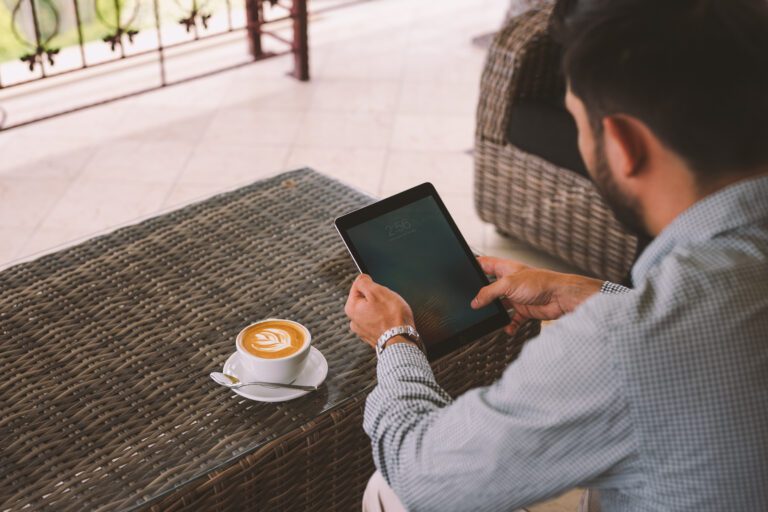
It’s safe to say that we have gained a lot of insight into our daily lives since COVID-19 turned them upside down. So many of the mundane, everyday blocks that built our lives have been thrown aside. Whether it be a commute to or from work, our regular exercise classes, or even collecting our coffee from our local coffee shop, many of us are feeling lost and out of place.
Written by Emily Hill, Communications at The Banyans
Science backs you – your brain is rewiring.
We often underestimate the power of our mind. Did you know that it is always rewiring, creating shortcuts and patterns that help us use up less of our energy on thinking? In psychology, these are called heuristics. They are “rules of thumb” that your brain creates to help you solve problems more quickly. They are why you can do common tasks (like making toast) on “autopilot”.
Usually, this is a powerful and amazing trait that helps us navigate life with ease. At the moment though – it may be part of the reason why you’re feeling hungry at odd times of day, you are struggling to concentrate or switch off at the end of the work day.
Put simply – your brain detects our patterns and uses regular occurrences as “triggers” for other things.
For example, your morning coffee indicates that your work day is starting. Your morning commute gives you time to create a mental checklist of the day ahead – and the commute home lets you separate from your work day and leave those tasks behind. Your exercise class may indicate that you’re half way through the work week!
Without your regular “triggers”, your brain is struggling to make the next steps – like focusing, separating work life and home life, or giving you the burst of motivation that you need to make it to Friday strong.

The good news – your brain will create new shortcuts. But you can certainly help it along during the transition. Here are four ways you can help create new patterns that separate your work life from your home life.
1. Recreate your morning commute with exercise
Working from home means that you are no longer spending time commuting – so why not use that time to incorporate exercise into your schedule?
This can also be a helpful way to “habit stack” – and knock out a few birds with one stone. By incorporating a few of your regular habits together, your brain will create the new connection faster.
Perhaps you usually listen to an audio book, podcast or get a coffee on your way to work. Using your regular commute time to walk to your local coffee shop can provide you the time to listen to your audiobook or podcast, get yourself into a focused headspace for the day, and improves your physical health.

2. Learn what relieves stress for you.
This is important for all times of life, but especially when our regular rhythms have been disrupted. When our regular patterns have been removed, our minds are in overdrive, trying to make sense of what is happening around us.
Everybody responds to stress differently – with some needing social connection, and others needing solace. Some people relieve stress with activity, and others with sleep.
Although finding how you respond to stress is a lifelong and personally unique process, there are helpful tools that can help you understand how you prefer to behave and communicate in times of stress. The DISC profile is one of these tools.
Equip yourself with personal understanding
If you haven’t completed a DISC training module – a powerful yet simple tool to help you understand yourself and others – The Banyans has certified DISC analysts who can give you access to the assessment, provide the detailed report and then take you through a coaching session via phone or video chat.
3. Create an end of day ritual
Similar to our morning commute suggestion, having a simple activity that symbolises the end of the work day can be an important part of working from home.
For some people, this may be clearing the inbox, shutting down the computer, and switching off the office lights. Unfortunately, these things can be more difficult when working from, especially if you do not have a dedicated office space or “work only” device.

Engaging in mindful activities like a warm shower can be an easy and relaxing way to help you brain make the transition to “home time”. By focusing on the representation of a shower washing off your day, you are giving your brain permission to leave those things behind and relax.
4. Maintain your sleep routine.
One thing that hasn’t been taken away from us in recent times is our capacity (and need!) for sleep. Yet, when everything else feels up in the air, and we are experiencing heightened stress or anxiety, our sleep life is likely to take to a hit.
Whether it be wakefulness, difficulties falling or staying asleep, nightmares or complete insomnia, it is critical that we try to maintain our sleep cycles as much as possible.
Mallory Laurie is a psychologist at The Banyans Health and Wellness. In Part 4 of the Workforce Wellbeing Series, Mallory educates on the value of sleep, and the crucial role it plays in the regulation of our hormones, brain function, and productivity.
Related: Six surprising signs of sleep debt and exhaustion
“When we sleep, we give our brains and bodies time to process the day,” Mallory explains. “Our brain goes through a process of categorising what is important and what is taking up unnecessary space.”

In addition, research has consistently reflected the role of sleep in memory consolidation and learning – meaning that you are more likely to adapt and cope well with changes if you are consistently getting a sound night’s sleep.
To learn more about how to harness the power of a sound sleep in reducing stress and anxiety, learn more about engaging in the Workforce Wellbeing Series.
Looking for more?
Are you looking for more ways that you can cope with change, especially while working from home? The Banyans have created a four-part video series to equip you with the skills and strategies to navigate change, reduce anxiety, and come out on the other side stronger.
Designed for times of stress and change, the four part video series and downloadable workbook empowers individuals to thrive, both on and off the job.
















